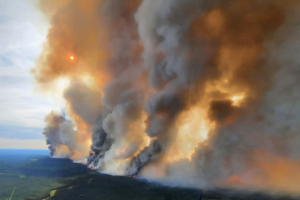On October 22, Canada will impose tariffs on Chinese steel and aluminum

Canada released a list of several dozen Tariffs on Chinese steel and aluminum imports that will be subject to a 25% tax beginning in three weeks.
The tariffs aim to protect domestic producers from lower-cost goods made in Asia’s largest economy. They were announced in August along with a 100% duty on electric vehicles made in China. This moves Canada’s trade policy closer to those of its closest allies.
Among the several products to which the tariffs will be applied are ingots, coils, wires, bars, and rods. Items in transit on October 22nd will not be subject to this rule.
Within the next year, the government stated, it will assess the measures and may decide to extend them or “supplement them with additional measures.”
The actions taken by the Biden administration against Chinese EVs, batteries, solar cells, steel, and other exports have been keenly observed by Canada, a country whose economy is largely dependent on trade with the US.
Certain hybrid passenger cars, trucks, buses, and delivery vans are subject to Canada’s surtax on electric vehicles, which goes into force on Tuesday.
Officials in Canada believe that this wildfire season is expected to be the second biggest in the past 20 years.

According to government officials, Canada’s wildfire season is expected to be the second biggest in the last 20 years, only surpassed by the record-breaking season of last year. This information was released on Wednesday.
5.3 million hectares have been burnt so far, according to officials, but they stress the figure is preliminary. They attribute the fire activity to above-average temperatures and drought conditions in several parts of Canada.
Federal records show that only three seasons have burned more than five million hectares, the latest of which was in 1995, aside from the approximately 15 million hectares that burned last year.
A year of unrelenting fire
Natural Resources Canada research scientist Yan Boulanger claims that climate change has caused the wildfire season to begin and conclude earlier, making fire a year-round occurrence.
It was to be expected that Western Canada would be severely struck this year; according to officials, British Columbia, Alberta, the Northwest Territories, and Saskatchewan accounted for 70% of the total area burned. Those areas are still seeing fire activity.
Given the predicted warm and dry conditions for at least the next month, there is a chance that fire activity will persist into the winter, especially in the junction of B.C., Alberta, and NWT.
What to expect from Canada this year’s cold and flu season?

Cold and flu season is upon us, and as the weather cools and more Canadians stay inside, we may soon be experiencing the well-known aches, pains, and sniffles.
The flu can strike anyone, but while it can sometimes cause serious problems or even death, experts emphasize the value of getting vaccinated against the virus every year. In Canada, the flu season normally lasts from November to April.
Infectious disease expert Gerald Evans of Queen’s University in Kingston, Ontario, predicts that influenza H3N2 will be the most common strain this year, with traces of H1N1 and influenza B also circulating, though not in significant proportions.
However, Evans pointed out that travel patterns frequently affect when the influenza season begins, so it can be unpredictable. The virus might spread earlier if there is a rise in travel from the southern hemisphere.
What concerning COVID-19?
In the southern hemisphere, influenza did result in some illnesses and deaths, but Evans noted that these numbers were generally average for the region. He continued, however, that COVID-19’s ongoing effects greatly overshadowed these figures.
It is not yet known when the COVID-19 vaccine will be available.
Pregnant women and older persons can now receive vaccinations against RSV to protect them. Families with newborns and young children who are considered to be at high risk will have access to a publicly financed RSV vaccine, subject to the province.
This fall and winter, all babies experiencing their first RSV season in Ontario, Quebec, and Nunavut will have access to the more recent monoclonal antibody nirsevimab, which was approved by Health Canada in the spring of 2023.
